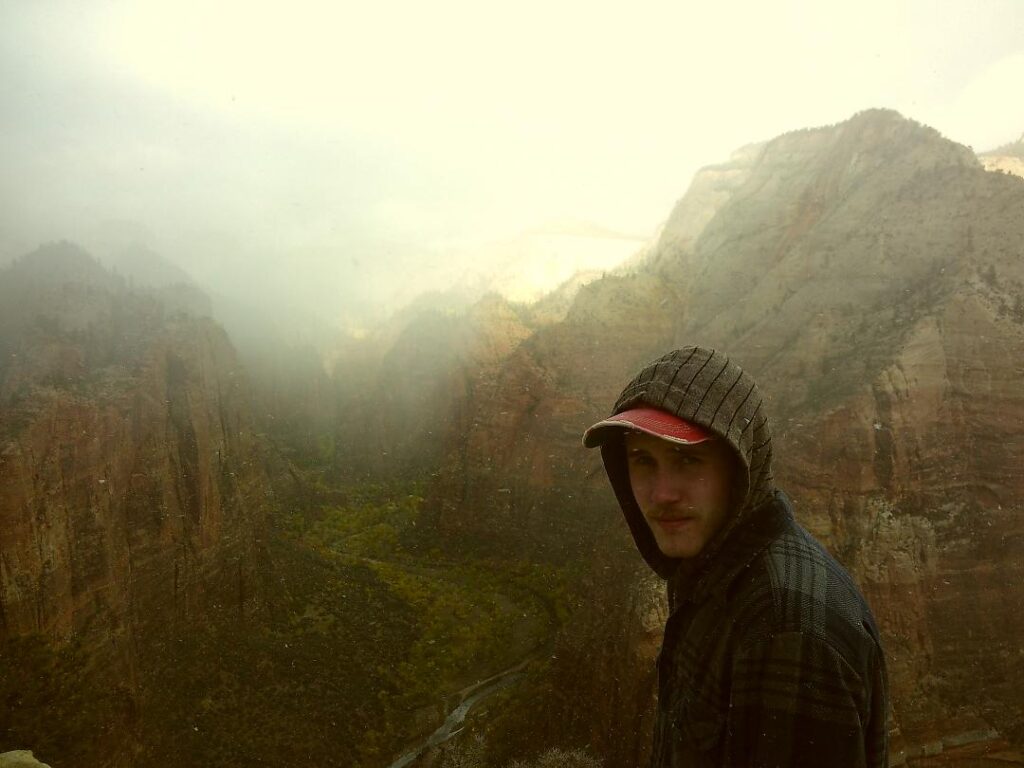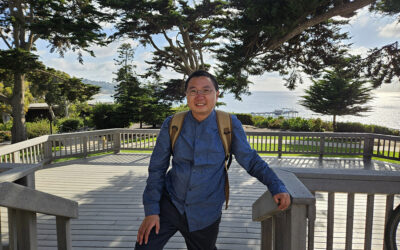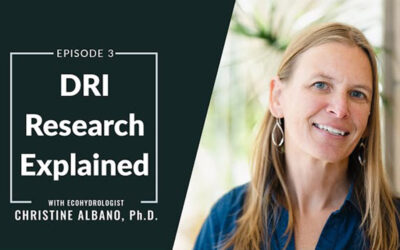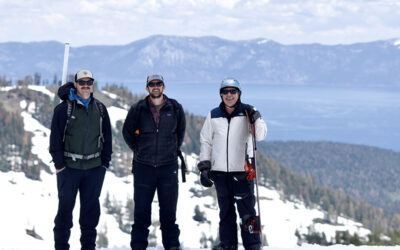
Erik Henzl is a Staff Research Scientist and environmental economist who joined DRI in January 2025. Based at DRI’s Reno campus, he is currently focused on estimating the water and energy required to support Nevada’s rapidly expanding data centers now and into the future.
Henzl grew up in California’s Bay Area and came to Reno shortly after finishing his undergraduate degree in environmental economics at Colgate University. In the following interview, he shares his passion for learning as a vocation and how his research will help Nevada navigate its growing role in the digital world.
DRI: Tell us about your background and what brought you to DRI.
Henzl: I went to Colgate University and studied environmental economics, and then after graduating, I began work as a research associate at the University of Nevada, Reno. I was working on an NSF project called “Where We Live” that’s looking at adaptations to climate change in rural communities. For that project, I wrote a historical chronology examining the history of water resources and water rights of the Humboldt River Basin. And from there, I made my way to DHS in January. Since then, I’ve been working with Sean McKenna examining data center water and energy use, as well as a smaller project revolving around tracking water bottle reuse at major events.
DRI: Did you want to be a scientist when you were a kid?
Henzl: I think as a very little kid, I wanted to be a zookeeper, but I later realized that I really enjoyed being a student. I thought, and still think, that it’s an enormous privilege for learning to be your job. There’s something satisfying about asking questions and having the autonomy to investigate them. There’s also the applied aspect as well, realizing that what you’re doing has real world impacts and can benefit both people and the environment.
DRI: Why did you choose to study environmental economics?
Henzl: I think in part because my dad worked in renewable energy for a long time, so it was always something on my mind. I also enjoyed math as a middle school and high school student, and I felt a good union of those subjects was environmental economics.
DRI: Tell us more about your current projects.
Henzl: For the data center project, I’m estimating water demand for 12 announced data center projects in Nevada based on their projected load growth by NV Energy. They require a lot of water, both directly through cooling and indirectly through electricity generation. I’m also looking at the challenges associated with energy use over an eight-year buildout.
For the water bottle reuse project, the idea is to attach Radio Frequency Identification (RFID) tags to reusable metal water bottles. That way, when people refill them at a refilling station, we can track their reuse. The idea is to implement it at large events to reduce plastic waste. We’re in the early stages of having discussions with people about how this could be integrated into their events and trying to better understand what kind of bottle they would manufacture. The bottle design largely impacts what kind of solution we can implement. We received a grant from the Governor’s Office of Economic Development (GOED) for the project.
DRI: What does your day to day look like?
Henzl: Often I’m looking at different industry reports, sustainability reports or academic reports like those from the Lawrence Berkeley Laboratory or the International Energy Agency (IEA) to better understand how AI and data centers are scaling. Otherwise, I’m working on my analysis, trying to better understand what electricity and water demand in Nevada looks like with all these projects coming in, and then situating that within the context of the state’s growth as a rapidly evolving data center hotspot. I’m trying to better understand the challenges that entails and how it may impact stakeholders.
DRI: What are you most excited for in your new role?
Henzl: I’d say I’m most excited about two things: learning about this evolving technology and this trend of AI and data centers and understanding how Nevada is positioned to become a key player in this increasingly digital world. That’s really interesting to me. What’s also interesting, and empowering in a way, is knowing that this research has the potential to deliver important information to decision makers that may then enable them to better balance stakeholder interests.
DRI: What do you like to do when you’re not working?
Henzl: I enjoy spending time with friends and family, and I enjoy hiking. I also like to read a lot.

DRI: If you could recommend one book to your colleagues, what would it be?
Henzl: It’s difficult to pick. I just finished this interesting sci-fi book called The Doomed City by Arkady and Boris Strugatsky. It’s about a city where people from the 20th century are plucked out of different places and different times and placed in the city to live together. They switch through different jobs in what started as a relatively egalitarian society, but things quickly get out of hand.
DRI: Is there anything else you want the DRI community to know about you?
Henzl: I’m always open to meeting new people, and as someone still very early in my career, I welcome any advice and learning opportunities.


